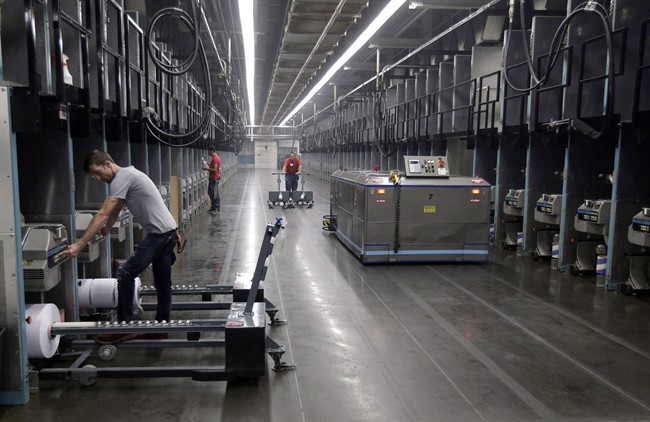Canada’s millennials are facing all sorts of challenges: high home prices, soaring tuition fees and record household debt.

But there’s one challenge that they’re well-placed to weather, says a new study: the rise of the machines.
Indeed.com came to this conclusion by looking at job seeker interest in a number of jobs that are at high-risk of automation.
They found that millennials could be protected from this trend because they’re just not that interested in occupying the jobs that robots could take away.
Millennials (aged 20 to 36 this year) were more interested than Baby Boomers and Generation Xers in “non-routine cognitive” jobs, which include management and professional positions, which are at “low risk of automation,” Indeed.com said.
By contrast, they were the least interested out of all three generations in “routine manual” jobs in industries such as construction, production and transportation.

Get weekly money news
This category includes many jobs that are at high risk of automation.
Baby Boomers were 54 per cent more likely to be interested in jobs in this area.
Indeed.com then gauged millennial interest in various jobs by narrowing down job search activity to a number of major occupational categories.
The chart above shows that millennials had more interest in “higher-skilled and non-routine occupations” that are “less likely to face replacement by automation,” Indeed.com said.
Baby Boomers were more likely to favour routine occupations, like transportation and material moving, or production, or installation, maintenance and repair.
Construction and extraction, and management were more preferred by Generation Xers.
READ MORE: Millennials in the workplace: why they’re not entirely to blame for everything
“Millennials are much less keen on occupations at high-risk of automation than other generations,” Indeed.com wrote.
“And so are better situated to ride out the disruption that will likely be caused by the coming waves of automation.”
Indeed.com’s study isn’t the first to examine millennials’ relationship with automation in the workplace.
The Deloitte 2017 Millennial Survey found that the generation sees the benefits of automation in terms of economic growth and productivity. They do, however, remain concerned that it could take away jobs that might otherwise be available to them.
They do, however, remain concerned that it could take away jobs that might otherwise be available to them.
But they’re most concerned about the risk of automation making workplaces more sterile and “impersonal” or “less human.”
















Comments
Want to discuss? Please read our Commenting Policy first.